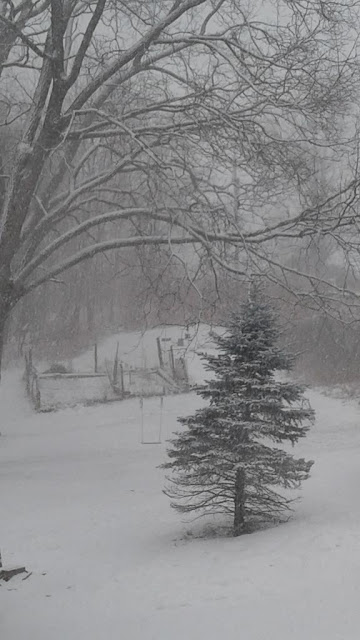The other Rs
We are all familiar with the three chasing arrows of the international recycling logo. Reduce, Reuse, Recycle. Yet over the years, the primary emphasis has been on the last R. In my own lifetime, I can vividly recall when recycling bins became a thing. And I loved how quickly people adapted to it. Sure some complained and groaned about it (though not in my family - some of us may have earned the title of 'recycling police'! Ready to launch a full scale investigation into who threw out the tin cans?? Ha!) But really, recycling was a good and necessary swinging of the pendulum. Finally an awareness into the question of 'what is garbage?' arose. And then many other relevant and eye-opening conversations spun off from there.
Yet the thing is, recycle is only one of the Rs. In the book Plastic: A Toxic Love Story by Susan Freinkel, she notes,
So what does all that mean. Basically, recycling is just ONE of the three Rs. It is not perfect and it is not meant to allow for unlimited growth.What needs to happen is much, much more emphasis on the first R. Reduce. (some people propose adding a 4th R for Rot (compost). Love that idea! But technically the first R is supposed to include that).
This R is going to always to be in direct opposition with our current economic system. If we are buying less, we are not participating in an infinite growth economy. We are working towards a New Economy that emphasizes localism, a living wage, shared wealth, and cooperatives among other things under the principals of justice, sustainability and democracy.
So, buy less. As Shannon Hayes puts it, work to be units of production instead of units of consumption. In small ways, in big ways, in whatever way possible. Less is indeed so much more.
 |
| Yes, those are toilet paper rolls. Not to become bound for the recycling bin, read on to find out their final destination. |
Yet the thing is, recycle is only one of the Rs. In the book Plastic: A Toxic Love Story by Susan Freinkel, she notes,
"...in our eagerness to relieve the pressure on landfills, we've put the main focus on end-of-life solutions-managing the stuff already identified as waste-rather than reducing its production at the source."What we are finding is that there is not less waste, in fact we are producing much more waste, according to data the EPA documents each year on the garbage from the U.S. And more concerning,
"Forty years after the first recycling programs got underway, Americans are producing more plastic packaging than ever and throwing away nearly as much."Yikes. Not good. Add to that the inherent flaws in recycling: not all plastic is recyclable; even if it is, sometimes supply is higher than the demand for that material so it is shipped off to China and sits in bales and is never recycled; there is a heavy environmental toll of recycling the existing plastic or dealing with the unusable plastic for China (think air and water pollution from either burning or burying the plastic); some of the plastic that is recycled is made into something that cannot be recycled again; etc. etc.
 |
| One helper scooping spent coffee grounds into said toilet paper rolls. You are asking, 'what IS going on here Meg?' |
So what does all that mean. Basically, recycling is just ONE of the three Rs. It is not perfect and it is not meant to allow for unlimited growth.What needs to happen is much, much more emphasis on the first R. Reduce. (some people propose adding a 4th R for Rot (compost). Love that idea! But technically the first R is supposed to include that).
This R is going to always to be in direct opposition with our current economic system. If we are buying less, we are not participating in an infinite growth economy. We are working towards a New Economy that emphasizes localism, a living wage, shared wealth, and cooperatives among other things under the principals of justice, sustainability and democracy.
So, buy less. As Shannon Hayes puts it, work to be units of production instead of units of consumption. In small ways, in big ways, in whatever way possible. Less is indeed so much more.




Comments
Post a Comment